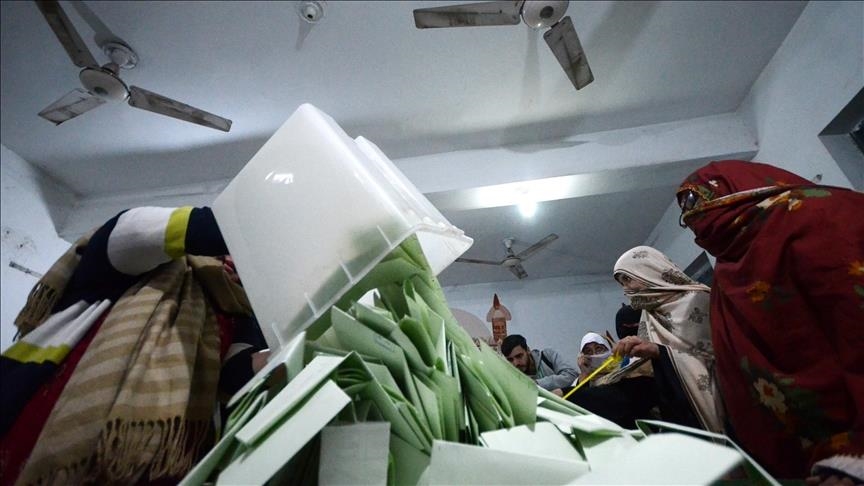Pakistan's Feb. 8 elections marred by rigging allegations, protests
Several parties have announced countrywide protests against alleged electoral fraud

ISLAMABAD/ KARACHI, Pakistan
Protests and rigging allegations have marred Pakistan's crucial general elections, the results of which were announced by the election commission on Sunday after almost three days of counting.
According to the final tally, independent candidates, mostly backed by the Pakistan Tehreek-e-Insaf (PTI) party of incarcerated ex-Prime Minister Imran Khan won the highest number of seats – 101 – followed by Nawaz Sharif's Pakistan Muslim League-Nawaz getting 75, (PML-N) and Bilawal Bhutto Zardari's center-left Pakistan People's Party (PPP) getting 55.
The PTI had called for nationwide protests on Sunday, and has mounted court challenges over results it alleges are rigged to deny it a majority in the 266-member lower house, or the National Assembly.
Islamabad police said it imposed Section 144 in force in the capital, and action would be taken against “illegal assembly.” “Some people are inciting illegal gatherings around the Election Commission and other government institutions. It should be noted that inciting to gather is also a crime,” it said on X.
Sirajul Haq, the chief of the mainstream religiopolitical party, the Jamaat-e-Islami (JI), has also rejected the results, terming them rigged.
The two are holding joint protest demonstrations in the commercial capital Karachi, where they claim they were in the lead but "results were changed overnight."
The Jamiat Ulema Islam (JUI) party led by Maulana Fazlur Rehman also blocked main highways at several points in the southern Sindh province on Sunday, disrupting inter-city traffic, saying the results were tampered with.
Government formation bid
A simple majority of 134 seats, excluding reserved seats for women and minorities, is required for a political party or coalition to form the government.
While Khan’s party claims victory and is willing to form the federal government, the country’s two other main parties have advanced talks to form a governing coalition.
The PTI says it is in a position to form governments in the center and the bellwether Punjab and northwestern Khyber Pakhtunkhwa (KP) provinces.
But there are hurdles. Since Khan’s candidates contested independently, as the party was relieved of its iconic bat symbol, the PTI is not eligible for the quota of reserved seats.
PML-N leader Marriyum Aurangzeb said they held negotiations with the PPP, but there was no breakthrough. The two parties, however, have agreed to continue talks. “We are also contacting independent candidates who have an important role in the electoral process,” she said on X.
But the PPP said there had been no formal talks. "Bilawal Bhutto Zardari (PPP Chairman) has clarified the party position with unambiguous clarity. At NO point after the election has the party spoken with N League on Federal, Balochistan, or Punjab government formation," Senator Sherry Rehman, a party, leader said on X.
According to Aurangzeb, a delegation of the Muttahida Quami Movement (MQM), which surprisingly won 17 seats from the commercial capital Karachi, was also scheduled to meet Nawaz in Lahore.
Anadolu Agency website contains only a portion of the news stories offered to subscribers in the AA News Broadcasting System (HAS), and in summarized form. Please contact us for subscription options.







